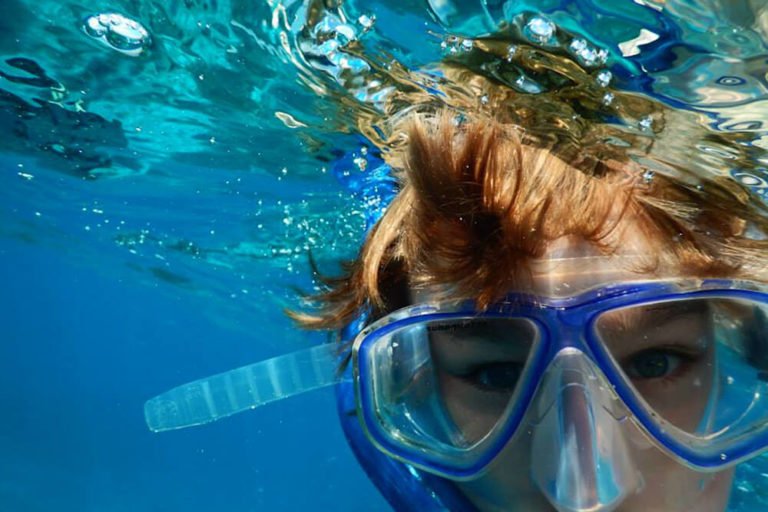How Old Do You Need to Be to Go Scuba Diving?

The day has finally come – your kid wants to go scuba diving with you. You can’t wait to share the magic of the underworld with them (and hey, it’s going to make those family vacations even more fun for you!). But before you take a child scuba diving for the first time, follow our checklist below.
SAFETY CHECKLIST FOR TAKING A CHILD SCUBA DIVING:
- Must be at least 8 years old to learn to scuba dive in a pool.
- Must be at least 10 years old to become a certified scuba diver.
- Must be 12-14 years old to scuba dive deeper than 40 feet.
- Child must want to dive on their own (not pressured by their friends or family).
- Child must be a strong swimmer. He or she may need to pass a swimming test.
- Child should be healthy and fit. If child has asthma, it is recommended that they not dive. Diving with asthma is more dangerous that normal exercise. Underwater, your child cannot easily stop exercise or use their inhaler, so they are at a much higher risk for complications.
- Child must be good at paying attention to instructions and applying learned principles.
- Child must be able to read.
- Child should be comfortable with strangers, as they will need to tell their instructor or dive master if they are experiencing any issues underwater.
- Any flight must be at least 24 hours after the end of the child’s dive . Read more about flying after diving.
SPECIFIC AGE REQUIREMENTS BY SCUBA ORGANIZATION:
-
SSI = 10 YEARS OLD
-
SDI = 10-14 YEARS OLD, WITH PARENTAL CONSENT
-
PADI = 10 YEARS OLD (8 YEAR OLDS CAN LEARN IN A POOL ONLY).
-
BSAC = 12 YEARS OLD
-
RAID = 12 YEARS OLD
-
NAUI = 15 YEARS OLD
FURTHER CONSIDERATION:
Adult scuba divers usually don’t have any issues equalizing their ears underwater. However, it is more difficult for children because they have undeveloped eustachian tubes (flattened and small) that can prevent air flow to the middle ear. For many children under 12 years old, it can be next to impossible to equalize their ears, which can cause severe pain and rupture ear drums. Read more about the importance of equalizing your ears underwater.
